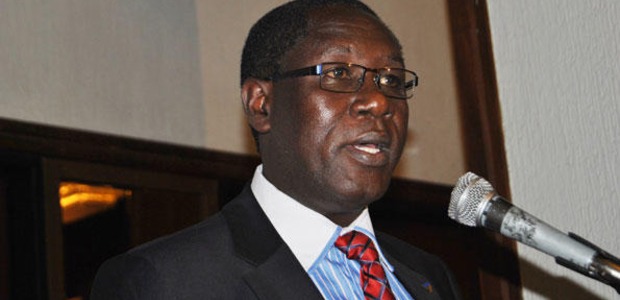advertisement
Broadband connectivity still remains a challenge in Africa
This was said by Francis Wangusi, Director General, and Communications Authority of Kenya during the 10th edition of the annual…

This was said by Francis Wangusi, Director General, and Communications Authority of Kenya during the 10th edition of the annual Spectrum Africa Workshop that saw Information, Communications and Technology (ICT) stakeholders across Africa converge in Nairobi to dialogue and submit solutions to spectrum challenges in enhancing broadband connectivity in Africa.
“We are all focused on the global analogue switch off deadline of 17th June 2015. If we consider spectrum as the lifeblood for broadband connectivity, then digital migration holds tremendous promise for Africa. Digital Migration will widen the choice for our people as analogue TV broadcasting frequencies will be released for use in deployment of new and advanced services including mobile broadband,” he added.
He also said that the Broadband Connectivity challenge does not only require more spectrum, but also the means to enable its reuse, and substantive investments towards research and development.
advertisement
“Looking at the increasing contribution of ICTs to the GDPs of our economies, then we must redouble our efforts to boost broadband which is poised to become a key platform for innovation. In so doing, spectrum must be sufficient and flexible enough to accommodate the growing demand and evolving technologies,” he said.
The three day workshop will focus on Spectrum Planning and Strategies for enhancing broadband connectivity in Africa. Specific areas of focus will include spectrum planning for the next generation of mobile networks, cognitive radios, and the Internet of Things (IoT). The workshop will also look into the critical area of Digital Switchover and imminent challenges and opportunities for Africa including management of the second (2nd) dividend and prospects for the 3rd digital dividend.
Speaking during the same event Cabinet Secretary Ministry of ICT, Dr. Fred Matiang’I urged all delegates to take advantage of the forum to gain knowledge, exchange views and seek partnerships that will help improve models for deploying broadband African countries. “Let us keep our focus on the need to connect more homes, get more people online, reach out to the marginalized and vulnerable groups, with due consideration for affordability to all,” he said.
advertisement
In his statement, Mr Abdoulkarim Soumaila, the ATU Secretary General said “Our collaboration with Kemilinks International on the three-day forum on Spectrum Africa is a good opportunity to interact and learn from each other on the status of the remaining phases of the digital television transition, the release of the digital dividend and the African Group preparatory arrangements towards WRC-15.”
Spectrum Africa is designed as a capacity building programme for policy makers, regulators, operators, legislators, academia, universities and their associated research establishments concerned with the development of telecom/ ICT and other industry stakeholders. It is strategically positioned to serve as a vehicle for Member States and African countries in general, to coordinate and harmonize positions on various telecommunications matters including spectrum resources and other related matter.
In his comments, the CEO of Kemilinks International, Mr. Shola Taylor said his company was pleased to partner with CA, NEPAD, ATU and other strategic regional ICT institutions to provide the platform for this event. “We are pleased to partner with CA, NEPAD, ATU and other strategic regional ICT institutions to provide the platform for this event. Timely and efficient allocation of spectrum in the right amount is critical to enable digital inclusion in Africa. The appropriate mix of mobile, optical fibre and satellite technologies in addressing these challenges is essential to improving the broadband connections in Africa and which in turn will enhance GDP growth rate and create more jobs. Spectrum Africa provides that platform to critically examine all these issues.”